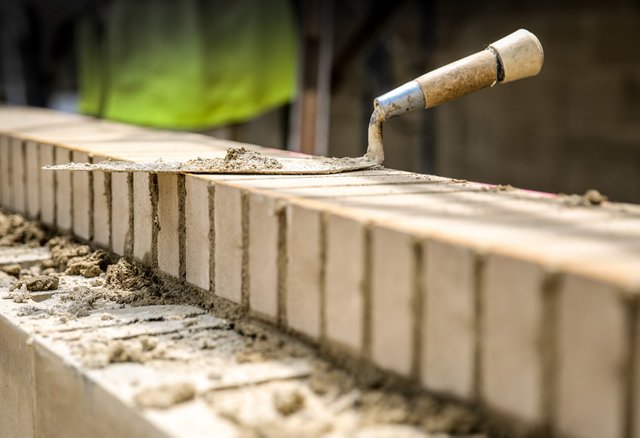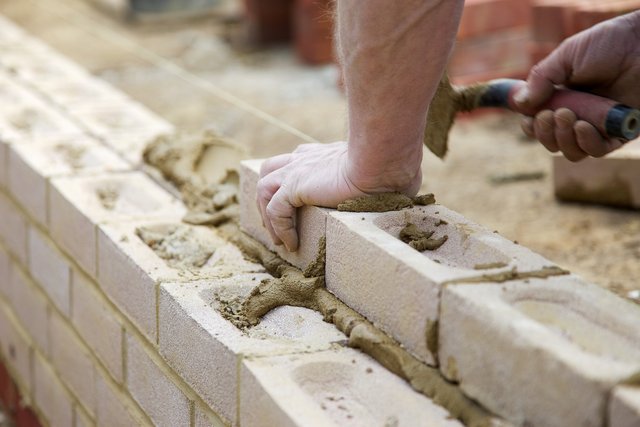In the diverse world of construction, the choice of building materials plays a pivotal role in determining the cost, durability, and environmental footprint of a structure. Among the various materials, block masonry stands out for its unique properties. This article provides a detailed comparison of block masonry with other prevalent building materials such as wood, steel, and concrete, focusing on aspects like cost, durability, thermal insulation, and environmental impact.

Cost:
Block masonry, typically made from concrete or cement, is often more cost-effective in initial outlay compared to materials like steel. However, it can be more expensive than wood, depending on the region and availability of materials. Wood is generally considered the least expensive option, particularly for residential construction, but this can vary based on the type of wood and local market conditions. Steel, while offering high strength, often comes with a higher price tag, especially in areas where steel is not locally produced. Concrete, a close relative of block masonry, is moderately priced, balancing cost with durability.Durability:
In terms of durability, block masonry excels, especially in resistance to fire, pests, and rot, which can be significant issues with wood. Steel also offers excellent durability and is resistant to many of the issues that affect wood and masonry, such as termites and mold. However, steel is prone to corrosion if not properly maintained. Concrete shares similar durability traits with block masonry but can be susceptible to cracking over time.Thermal Insulation:
Thermal insulation is another critical factor where block masonry generally performs moderately. It has better insulating properties than steel but lags behind wood and specialized concrete forms, such as autoclaved aerated concrete. Wood, with its natural insulating properties, offers excellent thermal insulation, reducing energy costs for heating and cooling. Steel, though strong, is a poor insulator and often requires additional insulation materials.Environmental Impact:
The environmental impact of building materials is increasingly important. Block masonry and concrete have a significant carbon footprint due to the energy-intensive production processes of cement. Wood, if sustainably sourced, is considered more environmentally friendly, as it is renewable and has a lower carbon footprint. Steel, though recyclable, also has a high energy cost in production, but its durability and recyclability can mitigate some of these environmental concerns over the long term.

The Bottom Line
Each material - block masonry, wood, steel, and concrete - has its strengths and weaknesses. The choice depends on a balance of cost, durability, thermal insulation, and environmental considerations, tailored to the specific needs of a project. Understanding these factors helps architects, engineers, and builders make informed decisions, leading to more efficient, sustainable, and cost-effective construction practices.
Considering Block Masonry in New Jersey?
If you're exploring block masonry for your construction projects in New Jersey, Kvartini: https://kvartini.com/ offers the expertise and experience you need. Understanding the state's unique climate, with cold winters and hot, humid summers, is crucial, and Kvartini can guide you in optimizing the thermal insulation properties of block masonry for energy efficiency and comfort. Whether your project aligns with the historic charm of colonial buildings or the sleek lines of modern architecture, Kvartini's team can help you navigate through the diverse architectural styles prevalent in New Jersey. They are well-versed in local building codes and regulations, ensuring that your project complies with all requirements.
Emphasizing the use of materials from local suppliers, they support the regional economy while potentially reducing costs. Their knowledge in block masonry makes them a valuable asset for any project, be it residential, commercial, or industrial. Focusing on durability, cost-effectiveness, and adaptability, they can help bring your construction vision to life.
For a consultation or more information on how block masonry in New Jersey: https://kvartini.com/services/block-masonry/ can be tailored to your specific needs, contact Kvartini today. Their team is ready to provide you with the guidance and support necessary for a successful and efficient building experience.